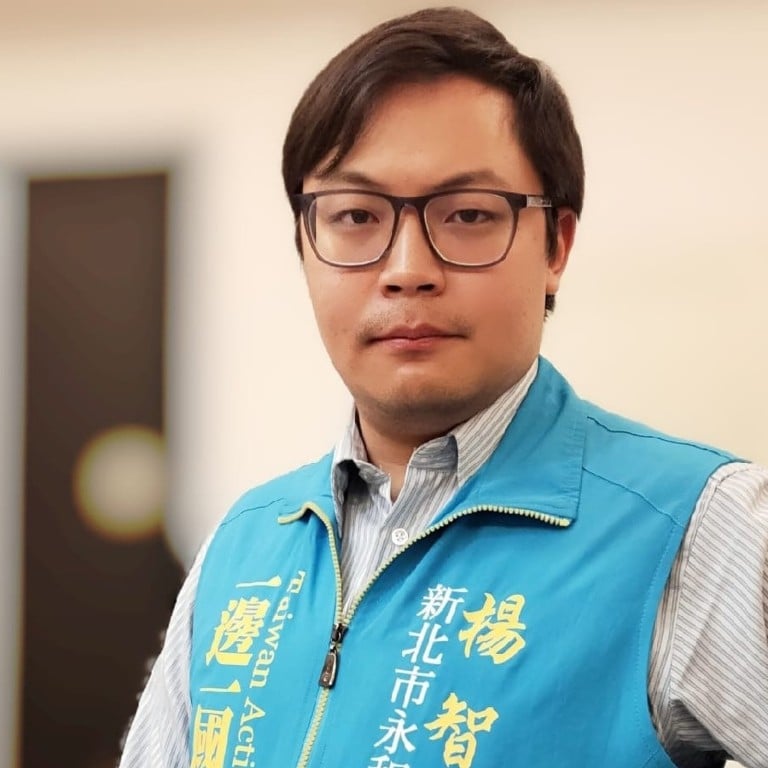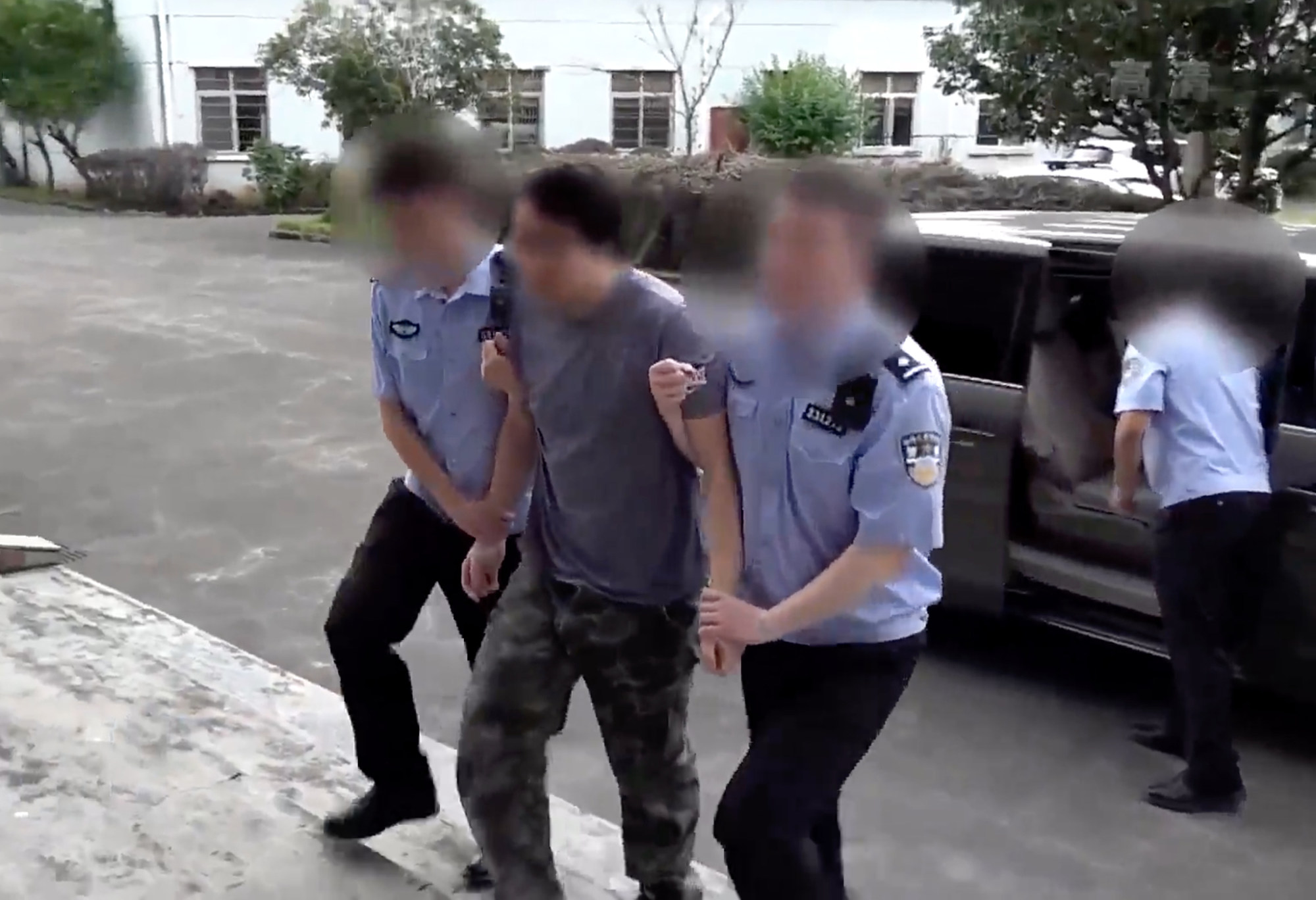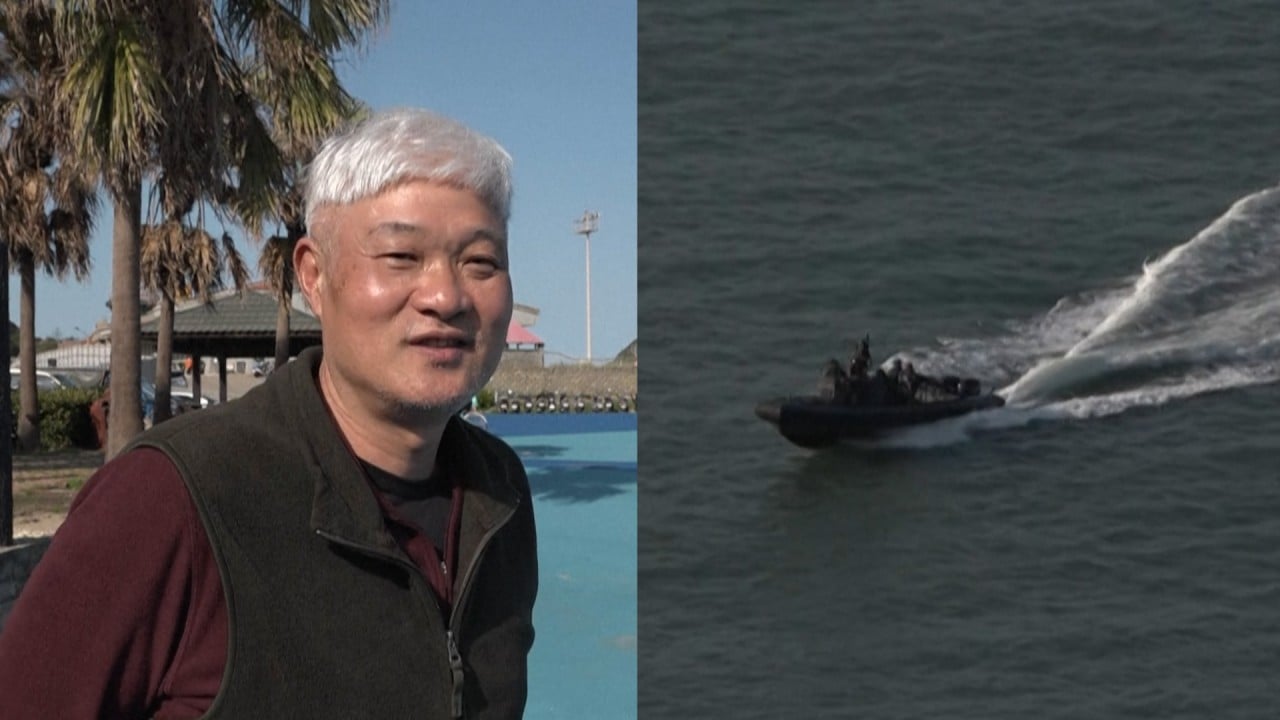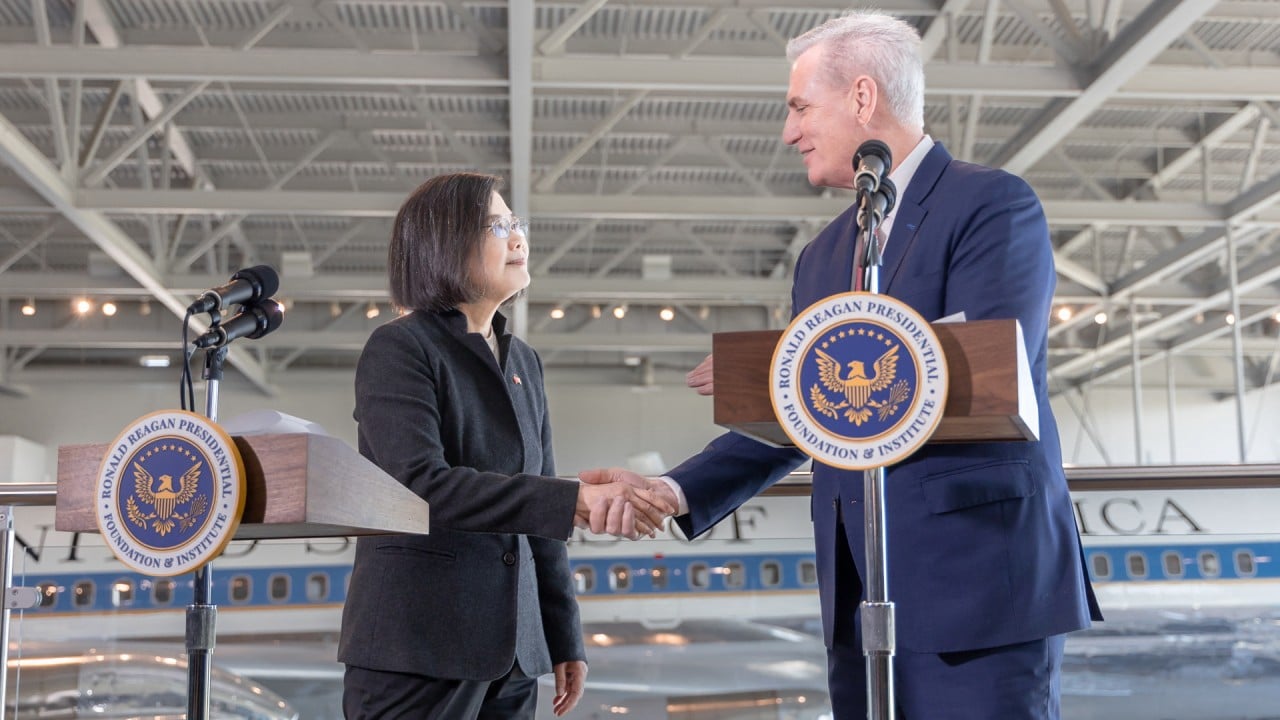
Taiwanese activist faces ‘secession’ charges in mainland China, in a first for cross-strait ties
- Yang Chih-yuan, 33, has been formally arrested after being detained in Wenzhou last year, according to Supreme People’s Procuratorate in Beijing
- Taiwan’s top cross-strait policy planner calls for his swift release, saying ‘random arrests’ sparking alarm on the island
Yang has been officially arrested and transferred to the public prosecutors’ office in Wenzhou for further action, the Supreme People’s Procuratorate in Beijing announced on Tuesday. No date for the prosecution was given.
Taiwan’s top cross-strait policy planner, the Mainland Affairs Council (MAC), called for his swift release. It said repeated requests for his safe return had been ignored since he was held in August, and that such “random arrests” had sparked alarm on the island.
Yang, 33, was detained in Wenzhou, in the eastern Chinese province of Zhejiang, shortly after then US House speaker Nancy Pelosi visited Taiwan and Beijing announced its intention to crack down on “Taiwanese separatists”.
He was accused of being a long-time advocate of “Taiwan independence” and of having founded a “Taiwan Nationalist Party”, which is illegal according to Chinese law and could invite the death penalty.
The goal of Yang’s party was “promoting Taiwan to become a sovereign and independent country and join the United Nations” and advocating a “referendum on independence and forming a state”, according to the reports.
His detention on August 3 came as Pelosi concluded her visit to Taipei, to which Beijing reacted with fury, saying it showed support for separatist forces and launching unprecedented live-fire military exercises around the island.
Beijing’s ‘reunification’ plan for Taiwan ‘on fast development track’
Yang was transferred to “residential surveillance at a designated location” and his family was informed on August 5, according to a previous state media report.
In a statement calling for Yang’s release on Tuesday, the Mainland Affairs Council cited the likely harm to normal cross-strait exchanges.
“With people on the two sides looking forward to the resumption of normal exchanges following the easing of the Covid-19 pandemic … the random arrests of Taiwanese people by the mainland side have not only seriously violated the human rights of our people and also alarmed people in Taiwan,” it said.
It also urged Taiwanese to carry out a “careful evaluation of the related risks” before visiting the mainland.
According to Chinese criminal law, a leader or key figure in an organisation that “plots or acts to split the country or undermine national unification” could be jailed from 10 years to life. Those who commit “particularly serious harms” may be sentenced to death, and those who actively participate could be jailed for up to 10 years.
According to Taiwanese media reports, Yang went to the eastern mainland city of Xiamen in January last year, months before his arrest in Wenzhou. His whereabouts in the interim are not known.

Chou Chung-teh, head of 908 Taiwan Republic Campaign, a pro-independence group in Taiwan, said Yang should have known it was dangerous.
“China has long nailed down who are the pro-independence activists in Taiwan. Chou is the vice-chair of the Taiwanese National Party and had run for legislator as a candidate of the Taiwan Action Party Alliance, formed by former president Chen Shui-bian. He should have evaluated the risks before going to China.”
Wu Se-chih, a researcher at the Cross-Strait Policy Association, a Taipei think tank, said with the relations between the two sides at their lowest point, it was risky for Taiwanese to travel to the mainland.
“As the presidential election in Taiwan approaches, cases like this might become more frequent as the Chinese Communists step up their intimidation campaign against Taiwan.”
Taiwan and US discuss weapons stockpile on or around island: premier
Wu said the government in Taipei should advise the public, especially those who advocated Taiwan independence, to think twice before visiting the mainland.
Cross-strait relations have deteriorated significantly since she took office in 2016 and ramped up exchanges with Washington.
The latest provocation for Beijing was her transit stop earlier this month in the US where she met US House Speaker Kevin McCarthy, prompting another round of Chinese military exercises around the island.
Beijing’s Taiwan Affairs Office said last August that Yang’s detention marked the first time mainland authorities had sought to hold “Taiwan independence individuals” responsible with secession-related charges.
“Stubborn Taiwan independent forces” who made arrogant separatist remarks and engaged in separatist activities “would not escape from the severe punishment of national law”, spokesman Ma Xiaoguang said.
Efforts in recent years to punish “Taiwan independence” supporters have included creating a blacklist of “stubborn” Taiwan secessionists, and banning their entry to and activities in the mainland.
More Taiwan names on blacklist to feel ‘real regret’, Beijing warns
Beijing considers Taiwan a breakaway province to be reunited, by force if necessary, and sees “Taiwan independence” forces as “the biggest obstacle” to its reunification goal. Most countries do not recognise self-ruled Taiwan as a sovereign state, but the US and its allies are opposed to any change of the status quo by force.
Zhu Songling, a Taiwan affairs specialist at Beijing Union University, said Yang’s case underlined Beijing’s determination to use legal tools to go after supporters of Taiwan independence.
“No matter who, no matter where they commit the crimes, as long as the case involves secession, they will be held accountable in accordance with the law.”
While an indictment with the charge of secession is a first, there have been several cases in recent years where Beijing jailed Taiwanese residents for alleged activities harming national security.
Lee Ming-che, another Taiwanese activist, served a five-year sentence in the mainland on subversion charges before being released last April.
Lee Meng-chu, a Taiwanese businessman, was arrested in 2019 for taking photos of paramilitary armed police in Shenzhen and spying, according to mainland authorities.
Authorities said last April that he had served his term for those offences but was still serving an additional sentence.




